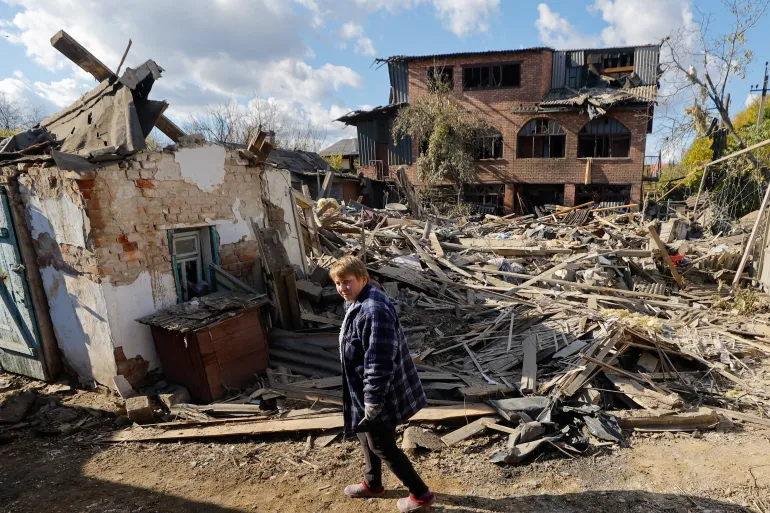Could COVID-19 mRNA vaccines also fight cancer?
Category: Breaking News | By: AFSHAN RIAZ | 2025-10-27 14:09:04

🌟 Key Highlights
💥 mRNA COVID-19 vaccines may help the immune system recognise and attack cancer tumours.
🧫 Studies show vaccinated cancer patients lived significantly longer than unvaccinated ones.
🏥 Research by University of Florida & MD Anderson Cancer Center, published in Nature.
⚙️ Vaccines appear to “wake up” immune cells, helping them detect hidden tumours.
🚀 Findings could pave the way for a universal cancer vaccine in the future.
🧠 A Groundbreaking Discovery
The same mRNA technology used to mass-produce COVID-19 vaccines may hold the key to fighting cancer, according to a new study unveiled at the European Society for Medical Oncology Congress in Berlin and published in the journal Nature.
Researchers from the University of Florida and University of Texas MD Anderson Cancer Center found that patients who received mRNA COVID-19 vaccines before starting cancer immunotherapy had significantly higher survival rates.
“These vaccines don’t just protect against infection — they ‘wake up’ the immune system to recognise and destroy tumours,” the researchers said. 🔬
💉 What Is an mRNA Vaccine?
Unlike traditional vaccines that use weakened or inactive viruses, mRNA (messenger RNA) vaccines deliver a snippet of genetic code that instructs cells to produce a harmless spike protein similar to that of the virus.
This process trains the immune system to identify and attack any matching proteins in the future — a method now being explored for tumour recognition.
🔍 How the Link Between mRNA and Cancer Was Found
Dr. Elias Sayour, a paediatric oncologist and researcher at the University of Florida, and his team discovered the potential connection after analysing data from over 1,000 cancer patients treated between August 2019 and August 2023 at MD Anderson Cancer Center.
When oncologist Adam Grippin compared survival data, a striking trend emerged — patients who had received an mRNA COVID vaccine within 100 days of starting immunotherapy lived significantly longer than those who had not.
“It seems the vaccine acted like a biological alarm, priming the immune system to fight harder against tumours,” Grippin explained. ⚙️
📊 How Much Longer Did Vaccinated Patients Live?
The results were extraordinary:
🫁 Advanced lung cancer patients saw median survival rise from 20.6 months to 37.3 months — nearly double.
🧬 Patients with “cold” tumours (harder for the immune system to detect) experienced the greatest benefit.
☀️ In metastatic melanoma cases, vaccinated patients had not yet reached their median survival even three years into follow-up, compared to just over two years for unvaccinated ones.
These findings were consistent regardless of vaccine brand, dosage, or timing.
⚙️ How Does It Work?
The research suggests that mRNA vaccines “alert” dendritic cells — white blood cells that help detect abnormalities in the body.
Once activated, these cells signal T cells to target cancerous cells more effectively.
However, cancer cells often protect themselves with a PD-L1 protein shield that hides them from immune attack.
When mRNA vaccines are used alongside checkpoint inhibitor drugs (which block PD-L1), the immune system stays active while cancer’s defences are neutralised — creating a potent dual attack. ⚔️
“It’s like waking the immune system while disabling the cancer’s camouflage,” Grippin said.
🧪 Tests in Mice Confirm Immune Activation
In lab experiments on mice, researchers injected mRNA vaccines directly into tumours, observing increased activity in dendritic and T cells — which slowed tumour growth in some cases.
Yet, not all immune systems possess enough tumour-killing T cells, which explains why immunotherapy works for some but not others.
The vaccine doesn’t create new T cells but helps existing ones recognise and target cancer cells more effectively. 🧫
🚀 What Does This Mean for Cancer Patients?
While the findings are preliminary, they point toward a potential revolution in oncology.
“These vaccines produce powerful anti-tumour immune responses,” said Dr. Grippin.
“The implications are extraordinary — this could lead to a universal, off-the-shelf cancer vaccine.”
The research team, co-led by Dr. Steven Lin, is now planning a Phase 3 clinical trial to test whether COVID mRNA vaccines should become part of standard care for cancer patients undergoing immunotherapy.
⚠️ Funding Challenges Ahead
Ironically, the breakthrough comes at a time when US federal funding for mRNA research has been cut by the Trump administration, raising concerns about delays in moving this discovery to clinical application. 💰
“We’re on the verge of transforming cancer treatment — we cannot afford to stop now,” Dr. Sayour warned.
🧭 The Bigger Picture
From pandemic technology to potential cancer therapy, this discovery showcases how innovation can reshape medicine in unexpected ways.
If further validated, mRNA could become a universal immune trigger — turning once “invisible” tumours into easy targets for the body’s defences.
“It all started with a pandemic vaccine — and may end with a cure,” one researcher remarked. 💫


